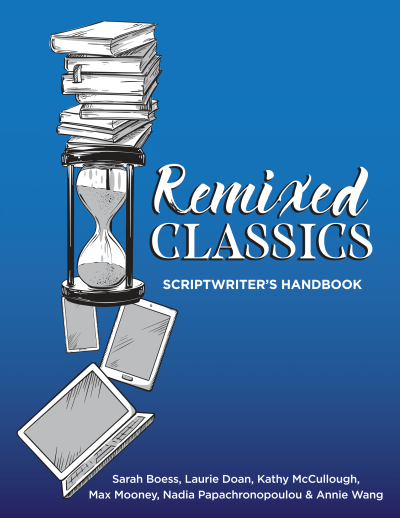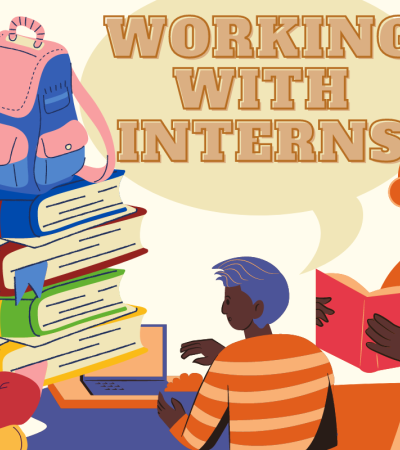“Classic literature is always being remixed,” says Laurie Doan, teen librarian at Tredyffrin Public Library in Strafford, Pennsylvania. “Take all the remixed versions of Shakespeare’s 'Romeo and Juliet,' for example, and the fact that Shakespeare himself remixed 'Romeo and Juliet' from an old Italian tale. "

Inspired by this constant interpretation of literature, Doan set out to find a way for her teens to revisit the classics by incorporating experiences from their own lives. The result was the Remixed Classics: Scriptwriter's Handbook, a free resource that makes it easy for any teen, anywhere to remix a classic piece of literature on their own. The handbook, compiled by a team of film and theater directors, playwrights, screenwriters, novelists, educators, and librarians, guides the reader step by step through the process of remixing a classic. Funding for the handbook has been provided by PA Humanities and the National Endowment for the Humanities as part of the American Rescue Plan Act of 2021.
Doan’s own mentorship team, made up of acclaimed experts in their respective fields, is also open to assisting (upon availability) anyone using the handbook. If you wish to contact the team behind the handbook, please email remixedclassics@gmail.com.
>>Download the Remixed Classics: Scriptwriter's Handbook<<
Workshop for teens
A teen workshop should work as a series — a summer series would be ideal — instead of a standalone program. Teen workshops may encourage thoughtful consideration of how classics might play out in contemporary times or with underrepresented populations as the main characters.
In groups or individually, have teen participants select, read and discuss a classic novel and research the time periods in which the novel was written and takes place. Invite local playwrights to share tips or play YouTube videos of interviews with scriptwriters and playwrights to serve as inspiration. Then, offer time for participants to write their own remixed scripts. Teens should consider these questions while beginning their remix: What if this story took place today or in a different culture with different characters?
The culmination of the teen workshop is for participants to watch each other’s films or skits.
Bring together a mentorship team
If you don’t have the capacity, resources or staff available to plan and produce a series of workshops, gather up a volunteer team to offer mentorship.
“Share the handbook with kids and teens at your library,” says Doan. “Have them work through it on their own, at home or at the library, and if they need any help or just need someone to bounce ideas off, have them contact someone on a dedicated Remixed Mentorship Team. You can reach out to local playwrights, scriptwriters, novelists and educators who would be excited to volunteer and help kids and teens who are using the handbook.”
Tips for using the handbook
Any librarian or educator can use the handbook to inspire creative storytelling. “We chose to focus the handbook on scriptwriting since film is popular with teens,” says Doan. “But the handbook can also be used for short story writing. It’s important to note that the handbook can be used in whatever way a librarian sees fit.” A remix is an easy way to get creative juices flowing as the skeleton of the original story is already there to follow – imagination is key in this type of project.
The goal of the handbook is to make an accessible, evergreen resource with the main importance being that readers who so often feel left out of the classics can see themselves represented.
The handbook takes away a lot of the pre-planning work needed to produce a workshop series or a one-time program. “It can be used as a class project for school librarians,” says Doan, “Or simply print a few copies out to keep at the front desk. If you see a kid looking bored, hand them the handbook or send them the link to the PDF.”
“Remind teens that any way they remix, whether they change the ethnicity of the character, the gender, the occupation, the time period, the culture, religion, country … it’s all valid,” says Doan. “I always say that ‘everything you need is already inside you.’”
Funding for this article has been provided by the National Endowment for the Humanities (NEH) as part of the American Rescue Plan: Humanities Organization Grant.



